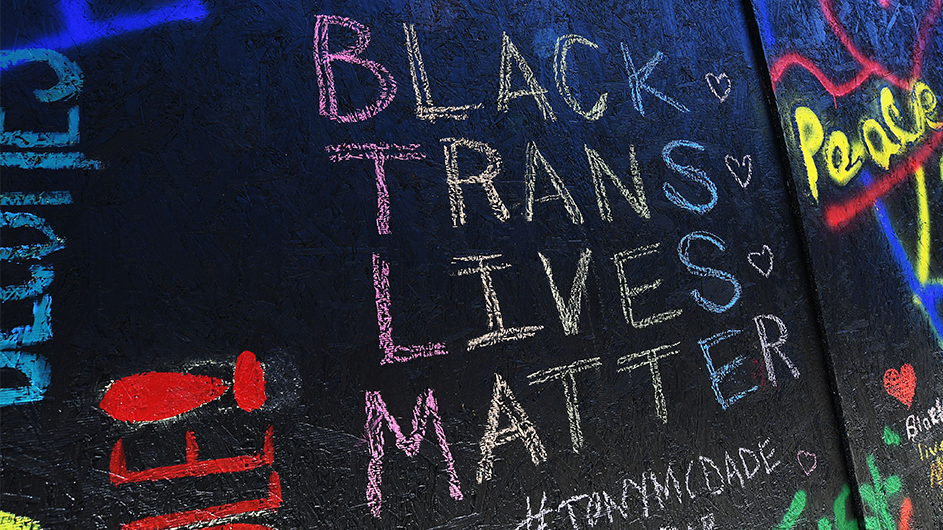On Transgender Day of Visibility, Remembering the Historic Roots of the Queer Rights Movement
The LGBTQ community has seen immense gains in political power, but trans women of color still face daily discrimination and violence.

On a hot August evening in 1966, at the Compton Cafeteria in San Francisco, California, the first in a series of collective uprisings within the queer community occurred. This revolutionary event was followed by the Stonewall “Riots” in Greenwich Village, in June 1969, which became the more famous cornerstone of international queer activism and catalyst for pride celebrations for over 50 years.
Compton Cafeteria, Stonewall, and the foundational events of the Queer Rights Movement share a common feature: those who bravely resisted police harassment and fought to be treated with dignity and equality were overwhelmingly transwomen of color. For instance, that “shot glass heard around the world” was thrown by a Black transwoman: Marsha P. Johnson. Johnson and her fellow Stonewall revolutionary, Sylvia Rivera, a Latina transwoman, would later co-found the Street Transvestite Action Revolutionaries (STAR) shelter for LGBT youth—the first of its kind in the United States—and spend the rest of their lives advocating for safe housing, employment, and health care for all members of the LGBTQ community.
In the years that followed, the queer movement would achieve previously unimagined political and social successes, including legal recognition of same-sex relationships and the support of an overwhelming majority of Americans for equal rights. However, these achievements generally accrued to cisgender, White members of the community, while Trans community members, and, in particular, Black, Indigenous, and People of Color (BIPOC) Trans members, were marginalized within the very movement they began.
In 2009, activist and therapist Rachel Crandall Crocker founded the International Transgender Day of Visibility (TDOV) to counter the invisibility of Trans folk and recognize their roles in the Queer Rights Movement. TDOV spotlights the leaders of the movement as well as their intersectional efforts to challenge transphobia, racism, misogyny, and heterosexism.
March 31, 2021, celebrates TDOV at a time that mirrors the historical dynamics of the Queer Movement. Despite their social and political progress, LGBTQ community members are more likely to be living in poverty and homeless as well as victims of discrimination, violence, sexual assault, and homicide; Trans community members, particularly Black and Brown trans community members, are disproportionately represented in these numbers. Moreover, recent initiatives in Utah, Mississippi, Alabama, and Tennessee led the Human Rights Campaign to declare 2021 a “record year for anti-transgender legislation.”
The Equality Act, passed by the U.S. House of Representatives on February 25, 2021, and currently before the Senate, would expand protections for the queer community to prohibit discrimination on the basis of sex, sexual orientation, and gender identity in employment, housing, public accommodations, education, federally funded programs, credit, and jury service. According to the Williams Institute: “Currently, over half of the LGBT people in the U.S. are not protected from discrimination in employment, housing, public accommodations, and other settings under state laws. The Equality Act would ensure that LGBT people are protected from discrimination no matter where they live.” The protections of the Equality Act would be of greatest benefit to those who first led the movement: BIPOC trans community members who bear the brunt of discrimination in the United States yet simultaneously receive the least support from the queer community as well as the general population.
On this International Transgender Day of Visibility, all of us—especially those of us who have directly benefited from the fierce revolutionary spirit of our trans forebearers—are called to celebrate our trans family members and urge Congress to pass the Equality Act and President Biden to sign it into law.

Gregory J. Payton, Ph.D., is a clinical psychologist and lecturer in the Department of Counseling and Clinical Psychology at Teachers College, Columbia University. This column is editorially independent of Columbia News.